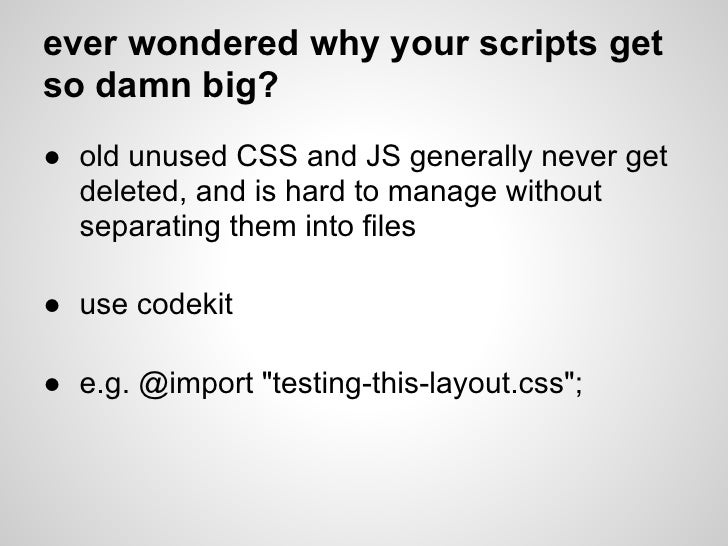

In our testing, HTTP/2 makes disaggregated files much faster than they were before, but still not as fast as aggregated files. (In theory, lots of little files, each individually cacheable, and downloaded en masse over one HTTP/2 connection would be more performant than one big inline CSS statement that's been aggregated.) The web community has long speculated whether HTTP/2 will make CSS and JavaScript aggregation irrelevant. One of the benefits of HTTP/2 is that it allows multiple files to be downloaded simultaneously.

To load custom scripts and styles only on relevant pages, use the appropriate APIs of Drupal and WordPress: Look at your theme and remove unused scripts or styles. Many sites load CSS and JavaScript files not used on the given page and not used on any page. You can also use Webpack to bundle your Javascript to call certain chunks on pages only where they are needed, instead of loading them site wide. We recommend using Webpack to optimize scripts into smaller sizes, that fit into packets more efficiently. Many of assets are unused by your site and can be removed. Precompiling your CSS and Javascript files requires that you become better acquainted with the style sheets and Javascript data waiting to be processed in your plugins. Though there are some easy wins that you should make sure you are getting. It also nearly guarantees a slower than necessary page load because both types of resources block rendering.įully optimizing all of the JavaScript and CSS on an already-built site is usually more work than can be done in one sitting. Loading everything separately and early in the page rendering process ensures that the effect of each file is taken on the first page rendering. js files separately, usually in HTML tag. To handle this norm in a way that ensures stable functionality, both systems default to serving each one of those. Deliver Efficient CSS and JavaScriptĭrupal and WordPress Core both allow for themes and modules/plugins to add individual CSS and JavaScript files to any given page (or every single page). If there are any assets that are not being gzipped, most likely they are assets loaded from outside Pantheon.
#USING CODEKIT WITH WORDPRESS INSTALL#
Users don't need to modify any Nginx/.htaccess configuration, nor install any 3rd party plugins/modules for gzip compression. The response headers include content-encoding: gzip which will serve the site's HTML, stylesheets and JavaScipt files in a reduced size before sending it to the browser, resulting to a faster Time To First Byte ( TTFB). GZIP Compressionīy default, gzip compression is already enabled server-side.
#USING CODEKIT WITH WORDPRESS CODE#
This section provides an overview of available tools and techniques to reduce code size.

This page provides information on optimizing code and CSS. Edit this page on GitHub | Report an issue with this doc


 0 kommentar(er)
0 kommentar(er)
